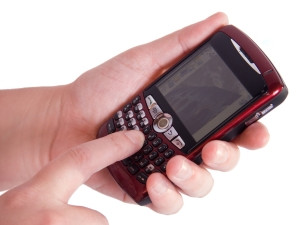
The City of Johannesburg's proposed plan to send 700 000 bills via MMS every month is another billing crisis in the making, as its core database is inaccurate and flawed.
Around 15% of the 1.1 million statements sent every month are returned, because they have gone to the incorrect mail or e-mail address, the official opposition says it has been told. Now, in a bid to provide a value-added service and operate greener, the city is asking some 700 000 residents to sign up to get bills via MMS.
The city says this is more convenient, trims its post bill, and reduces the chances of people defaulting, because the bill never arrived in the post. However, there are concerns that, due to inaccuracies in the city's database, the bid will fail and prove to be another stage in the ongoing billing crisis.
Wrong addresses
The inaccuracies in the city's database were highlighted earlier this month when the city apologised to the Mandela family after confirming a pre-termination notice was incorrectly delivered, and the address and account number belong to another customer and property in a neighbouring suburb, not to the Mandela residence.
While the city has said such errors are occasional and its data is being cleansed and updated, the Democratic Alliance (DA) says these sorts of errors are not sporadic and affect many of the city's residents.
As a result of the questionable information in the city's database, DA billing spokesman Linus Muller says the concept of sending bills out via MMS is another crisis in the making. "That's my feeling."
Muller says the system, which will affect hundreds of thousands of residents and has the potential to be yet another billing crisis, has not been properly investigated. "The Democratic Alliance is all for the adoption of smart technologies; however, as project Phakama proved, one needs to be careful moving forward with a system that will affect so many."
The previous billing crisis was precipitated by post-implementation issues after the city moved from Venus to SAP, at a cost of R580 million. The aftermath of project Phakama led to inflated statements and incorrect readings, among other problems.
The city has been working on resolving the issue and clearing the backlog of complaints, but has not released numbers showing its resolution rate for about a year.
Not delivered
Muller explains the city is asking people to sign up through SMSes and deems them to have opted in if they do not specifically opt out, at a cost of R1. However, he says this is problematic, because there is an assumption by the city that the SMS, and then the MMS bill, is going to the correct account-holder.
Some people have not been getting the opt-in SMS, says Muller, questioning where the city gets its database information from. He says some people may not get a bill at all, which then raises the question of accountability when it comes to settling the account.
Sending bills via MMS will cost the city R1.98 per bill, and residents would be able to download them onto a PC to save or print, says Muller.
Double-checked
Revenue department spokesperson Stan Maphologela says the city has been verifying that the cellphone numbers it has on record are accurate.
Third-party service providers are cross-checking the numbers within the database with other information sources, such as credit bureaus, explains Maphologela. He says there were cellphone numbers that were found to not be up to date, and these people will continue to receive bills through the post or by e-mail.
Maphologela adds that those who get bills via e-mail and elect to use the MMS service will continue to get their bills in their inboxes, while those who received invoices through ordinary mail and move to MMS will only get MMS bills.
Consumers who switch and fail to receive a bill can contact the call centre or visit a customer centre, says Maphologela. He says the move will trim postal delays, cut administration, save the city money and lead to less defaults as a result of bills not arriving in the post.
Share